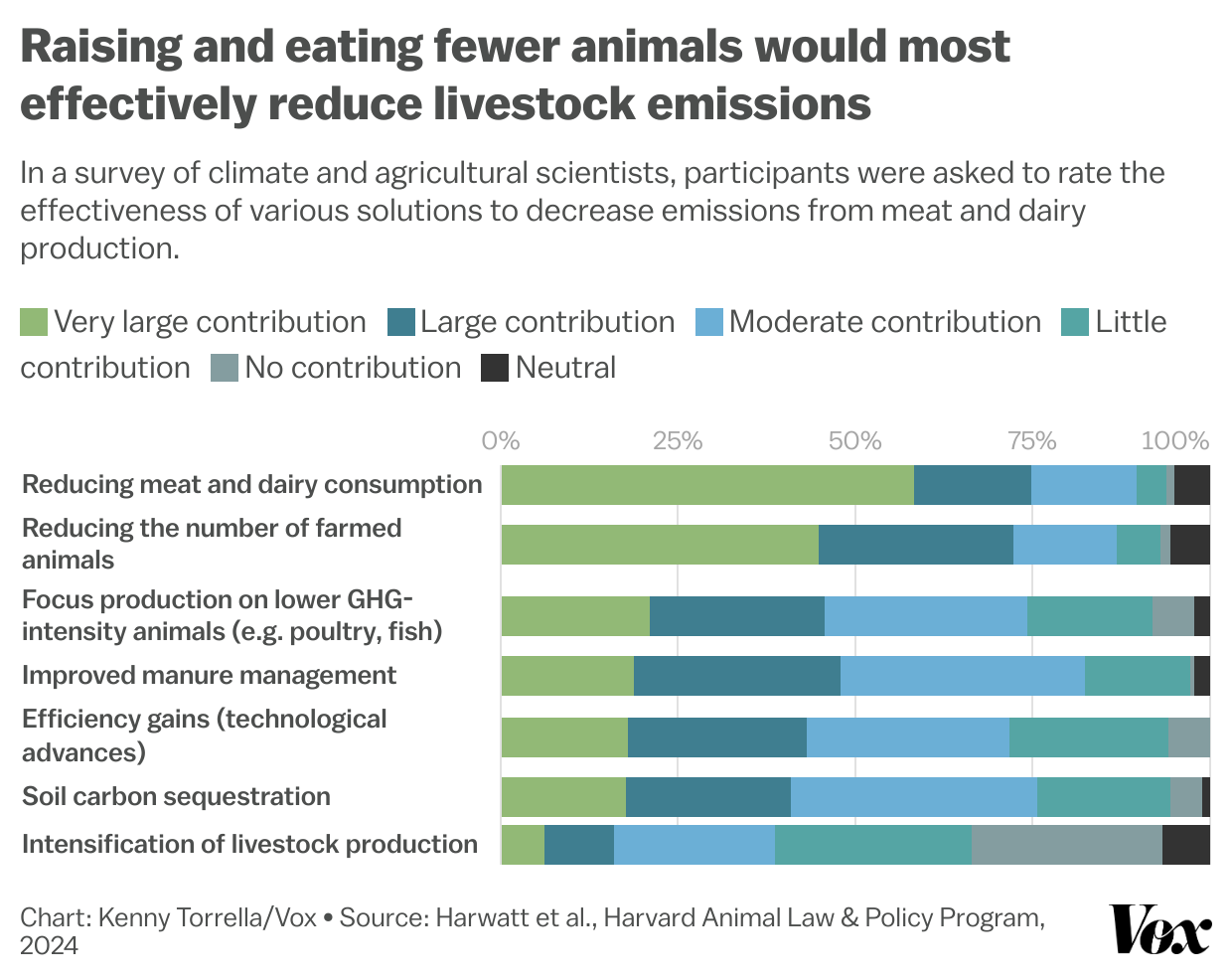On average globally, respondents said, we'd need to adopt a diet much richer in plant-based foods. But scientific consensus is often no match for politics.
Navigating the politics of meat
In the US, there's been no legislation passed to meaningfully reduce livestock emissions, as industry has lobbied hard against proposed regulations. European policymakers seeking to regulate animal agriculture have been met with fierce opposition. In the Netherlands, farmers have jammed up highways with tractors and set fire to hay bales in protest of new limits on livestock pollution.
"As we have seen by the recent protests in Europe, it's really becoming a left/right, or a liberal/conservative dividing line," said Lukas Fesenfeld, a researcher at ETH Zurich and lecturer at the University of Bern who studies environmental and food policy. Fesenfeld did not participate in the survey.
Fesenfeld said it's also a political economy issue, meaning that there aren't many actors who would benefit economically from a radical reduction in livestock numbers. Meanwhile, the powerful meat lobby has a strong interest in maintaining the status quo. There's also the personal element: People like meat, and government policy designed to reduce its supply would be highly unpopular.
A solution, Fesenfeld said, is to implement policy in a certain sequence — first carrots, then sticks — that could help reduce political blowback and ensure a more just transition.
First, governments could fund research and development to make meat and dairy alternatives taste better and become more affordable, while supporting farmers growing crops for a more plant-based food supply chain. Denmark, Germany, and other countries are experimenting with such policies.
Second, there's a lot the public sector could do to change the food environment to be more climate-friendly. For example, buying more plant-based meals with government dollars — like at schools and hospitals — and working with restaurants, grocers, and cafeterias to offer more plant-based options (and better market them).
Over the last two years, for example, New York City's hospital system served 1.2 million plant-based meals, which it says reduced its food carbon footprint by 36 percent in 2023, saved money, and had high reported satisfaction from patients.
These two approaches could eventually make more aggressive policies, like reducing agricultural subsidies for livestock production or making large meat companies pay for excessive pollution, more politically digestible.
"It's a really challenging thing, actually, for policymakers and the industry to think about the kind of depth and pace of the reductions that the experts are saying are needed," Harwatt said. But after decades of inaction, we're left with two options: aggressive policy to achieve that required depth and pace of reductions, or a dire level of global warming.
—Kenny Torrella, staff writer
Questions? Comments? Tell us what you think! Email us at futureperfect@vox.com.
And if you want to recommend this newsletter to your friends or colleagues, tell them to sign up at vox.com/future-perfect-newsletter.




















No hay comentarios:
Publicar un comentario